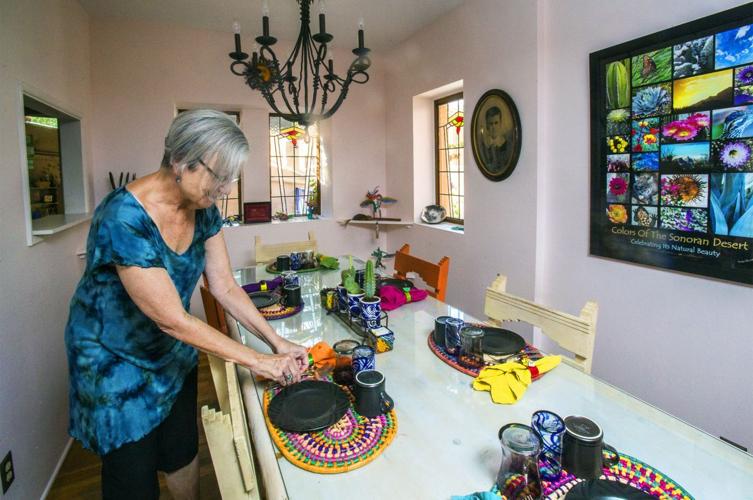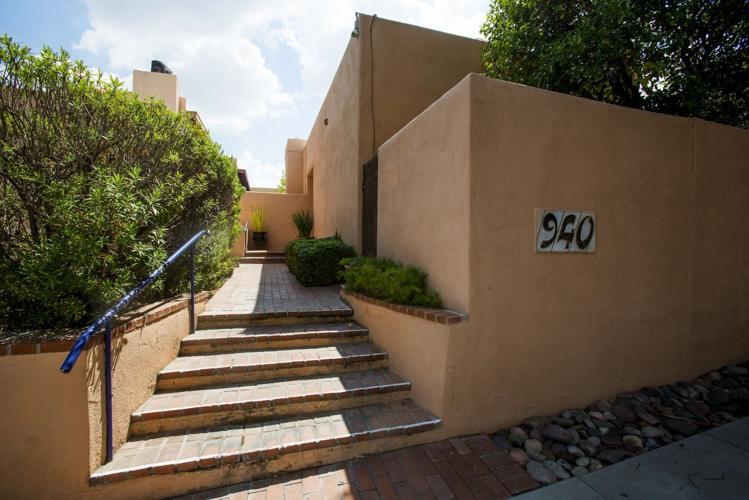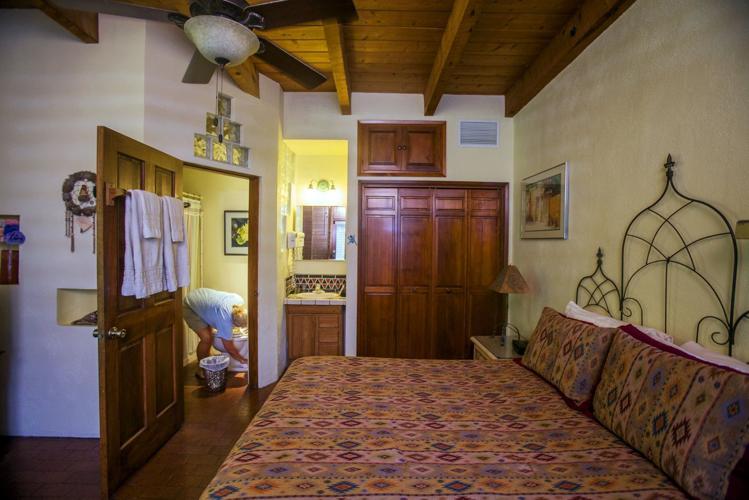Hundreds of Tucson-area homeowners were surprised to learn this year that their properties had been
The city of Tucson also is concerned with vacation and short-term rentals, which have become popular with travelers who want an experience different from hotel stays. It has formed a task force to investigate the unregulated industry, in which renters and homeowners find each other on websites like Airbnb and HomeAway.
Potentially, changes could affect even people who occasionally rent rooms or guesthouses. They also could require short-term landlords to collect sales and bed taxes from visitors.
County Assessor Bill Staples said state law defines transient lodging establishments as those that rent for less than 30 days at a time. Because vacation rentals and short-term rentals meet this criteria, the properties were reclassified as commercial. One way the County Assessor’s Office determined which properties to reclassify was to search vacation-rental websites for local properties.
This year the assessor reclassified 235 residential properties to commercial. But that’s likely a fraction of the number of residential properties rented short term in the region.
FEELS LIKE A MONEY GRAB
For some people who own vacation and short-term rentals, the move feels like a government money grab.
“What they did was slam us with twice the property tax,” said Chris McGuire. He and his wife, Shana McGuire, at one point owned two vacation rentals in Oro Valley but decided to sell them after the assessor notified them of the changes.
The reclassification changed their property tax payment ratio from 10 percent for residential to 18 percent for commercial.
“I’m trying to make a little bit of money and trying to make the mortgage,” Chris McGuire said. “It just wasn’t worthwhile.”
Shana McGuire said some vacation rental owners feel as if they’ve been singled out.
“If you only have one vacation rental, it’s not the government’s business what you do with it.”
LEVELING THE FIELD
Marion Hook, who owns the Adobe Rose Inn, a bed-and-breakfast near the University of Arizona, said she doesn’t want the government to deter people from the vacation rental business — but she sees a need for equal regulation.
“The only thing I would like to see is a level playing field,” Hook said. “None of us studying the issue of short-term rentals want it to stop.”
She’s one of the appointees to the city’s task force looking into the issue.
At stake for some is that hotels and bed-and-breakfasts are required to have licenses, pay taxes and meet health standards. Vacation rentals don’t need any of that.
Dan Gibson, director of communications at Visit Tucson, said short-term and vacation rental properties add another option for regional travelers that should be embraced.
“People do want different experiences,” Gibson said.
But like Hook, he said there are concerns about fairness if one group of businesses isn’t subject to the same rules as the other.
That’s how Tucson Mayor Jonathan Rothschild sees it, too.
“To me, if you’re advertising on one of these online platforms, that means you’re in business,” Rothschild said.
HARD TO PINPOINT
It’s difficult to tell how widespread vacation rentals are throughout the region.
City of Tucson economic development specialist Andrew Squire said a review of websites offering vacation rental properties available at the height of tourist season in April found 744.
“It’s really hard to pinpoint the total number of units and how often they’re rented,” Squire said.
Tracking vacation rentals would become important for regional governments if the industry faces local regulation — particularly if local governments start treating short-term rentals like hotels or bed-and-breakfasts, which would subject them to transient occupancy and bed taxes.
Sales tax on hotel stays in Tucson, Pima County and Marana is 12 percent. In Oro Valley the tax is 14.5 percent.
Tucson also charges a $2-per-night bed tax.
Last fiscal year the two taxes brought in more than $13.3 million for the city. The county expects to collect more than $6.6 million in hotel taxes this fiscal year.
EMERGING TREND
Visit Tucson estimates that as many as 20 percent of visitors to the region in 2014 stayed in short-term or vacation rental properties.
Pima County business services coordinator Patrick Cavanaugh said any regulation of the short-term rental industry should be regional in scope but not onerous to property owners.
“They’re an emerging part of Pima County’s tourism base, and tourism is important to our overall economy,” Cavanaugh said.
Squire said city officials have had some discussions with Airbnb officials about possible regulations that would be reasonable and enforceable.
“We don’t want to drive the industry out or underground,” the city’s Squire said.
Any final recommendation probably won’t come until late next year.






